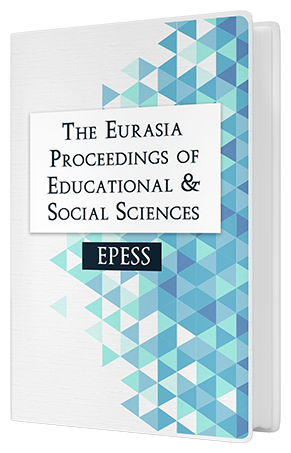Investigation of Problem Solving Behaviors of Social Studies Teacher Candidates
Keywords:
Social studies teacher candidates, Problem solving methodsAbstract
One of the important goals of contemporary education is to educate people who are able to solve the problems they are confronted with by themselves, that is, the difficulties that people face in their life and society. In this context, only information is not enough to solve the problem. Problem solving abilities can effectively use advanced human knowledge and solve the problems they are facing more easily. The aim of this study is to determine what methods of social studies teacher candidates use to solve social problems and what is the problem-solving behavior in this process. The research was prepared using qualitative techniques. The data were obtained through focus group interview and analyzed by descriptive analysis. According to the results of the research, it is seen that 1st and 2nd grade students are in a superficial approach to problem solving. However, it is observed that the teacher candidates who continue to the 4th grade have a deeper approach and use more problem-solving methods. In addition, the results show that the problem solving strategies they use when solving social problems differ according to the class level and the use of the strategy belonging to experienced problem solvers as the class level increases. On the basis of the results obtained, suggestions such as the development of strategy teaching programs aimed at teaching students to solve problem-solving skills should be included in the lessons and to provide problem solving strategies for students.Downloads
Published
Issue
Section
License
Copyright (c) 2018 The Eurasia Proceedings of Educational and Social Sciences

This work is licensed under a Creative Commons Attribution-NonCommercial-ShareAlike 4.0 International License.
The articles may be used for research, teaching, and private study purposes. Any substantial or systematic reproduction, redistribution, reselling, loan, sub-licensing, systematic supply, or distribution in any form to anyone is expressly forbidden. Authors alone are responsible for the contents of their articles. The journal owns the copyright of the articles. The publisher shall not be liable for any loss, actions, claims, proceedings, demand, or costs or damages whatsoever or howsoever caused arising directly or indirectly in connection with or arising out of the use of the research material. All authors are requested to disclose any actual or potential conflict of interest including any financial, personal or other relationships with other people or organizations regarding the submitted work.




